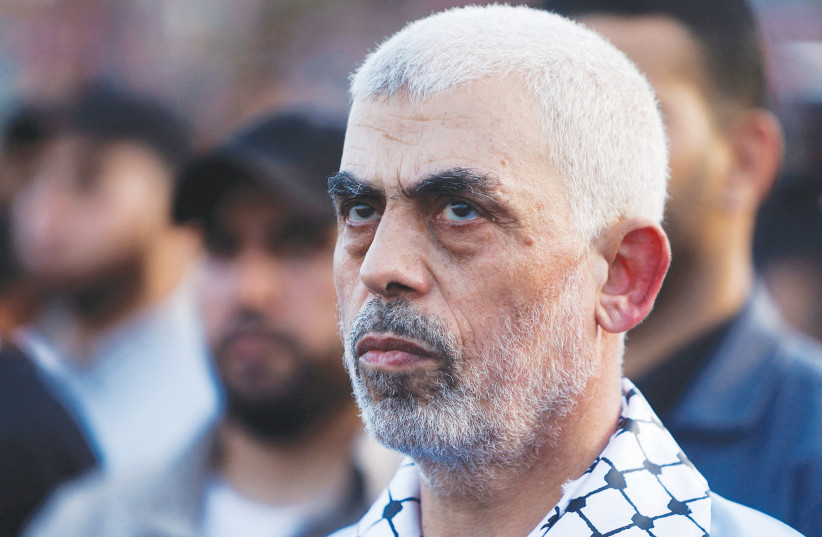An IDF investigation found that documents forged by the Hamas terrorist organization were leaked to foreign media outlets that would negatively shape public opinion on Israel, according to a Sunday report by Ynet.
The investigation was launched to find out who was manipulating the use of classified Hamas documents seized in Gaza or those that were only allegedly taken from Hamas, and passing them on to the international media in order to try and influence public opinion in Israel on the subject of a hostage deal.
The investigation's findings caused great concern and anger in Israel's security establishment, according to the report, which also claims to heighten tensions between Israeli security and Prime Minister Benjamin Netanyahu, a tension that has reached new highs following deep disagreements between the parties surrounding the deal.
Two articles published in the last few days were part of the IDF investigation, one from The Jewish Chronicle and one from the German tabloid newspaper Bild. Both have claimed to reveal internal and top secret documents of Hamas, supposedly straight from Yahya Sinwar's computer.
In both cases, Sinwar's strategy reflects exactly what Netanyahu claimed in his speech and in the interviews he gave last week, Ynet reported, according to which the Hamas leader is trying to sow division in the Israeli public and is not really interested in the hostage deal. It also stated that he plans to smuggle hostages through the tunnels under the Philadelphi Corridor to Egypt and, from there, to Iran. This was revealed during the interrogation of a captured Hamas official, as well as from information obtained from seized documents, Ynet reported.

Regarding the document that the Jewish Chronicle claimed to reveal, an examination of all the materials collected since the beginning showed that Israeli intelligence collectively has no idea what or who it is about.
An examination by the IDF of the document published in the Bild article revealed that it didn't even belong to Sinwar, but rather a proposal by a middle-ranking official in Hamas. Ynet reported that the main part in the Bild article is that the newspaper supposedly quotes from the document saying that Hamas is not interested in the deal - which was not quoted in it at all. The IDF said that the document in the Bild article is five months old.
"A very serious matter"
"This is a very serious matter," Ynet quoted an IDF official familiar with the investigation. "There are systems in the IDF and other intelligence agencies whose job it is to influence the "Red," which is the enemy, but according to the law, it is forbidden to try and operate such a system of influence, certainly not with the use of classified materials that were not allowed to be distributed in public at all.
"This is an influence campaign on the "Blue," the Israeli public. We are not dealing with politics, but we are determined to find the person or the party behind it."
After the Jewish Chronicle published the article claiming that Sinwar was planning on smuggling the hostages to Iran, the reporter, Elon Perry, used Israeli intelligence sources and claimed that one source told him that the real reason why Hamas can't release hostages is that only "20 of them are left alive in Gaza and many of them are being held handcuffed around Sinwar to act as a human shield for him," Ynet quoted him.
However, the Israeli security establishment disputes those numbers - believing that many more remain alive, and at the very least, the vast majority of them are not held close to the Hamas leader.
